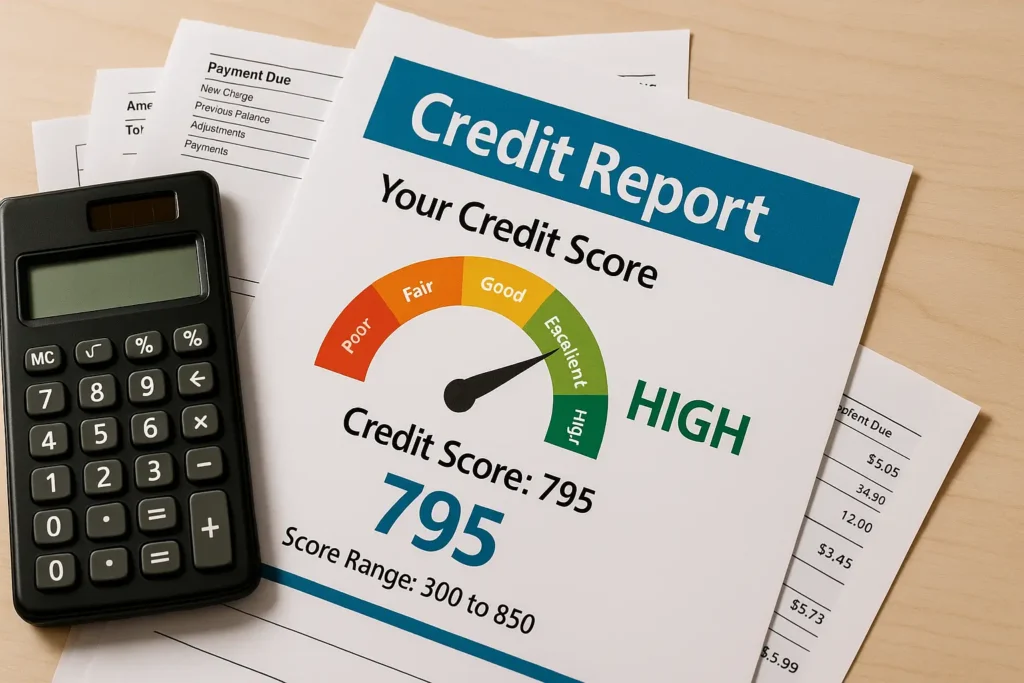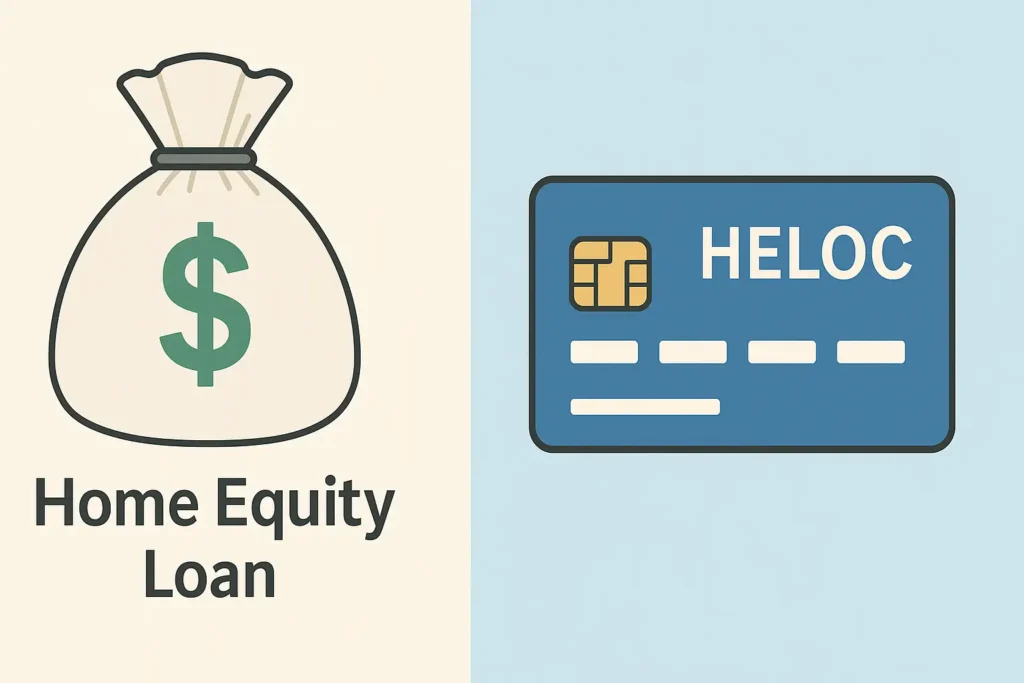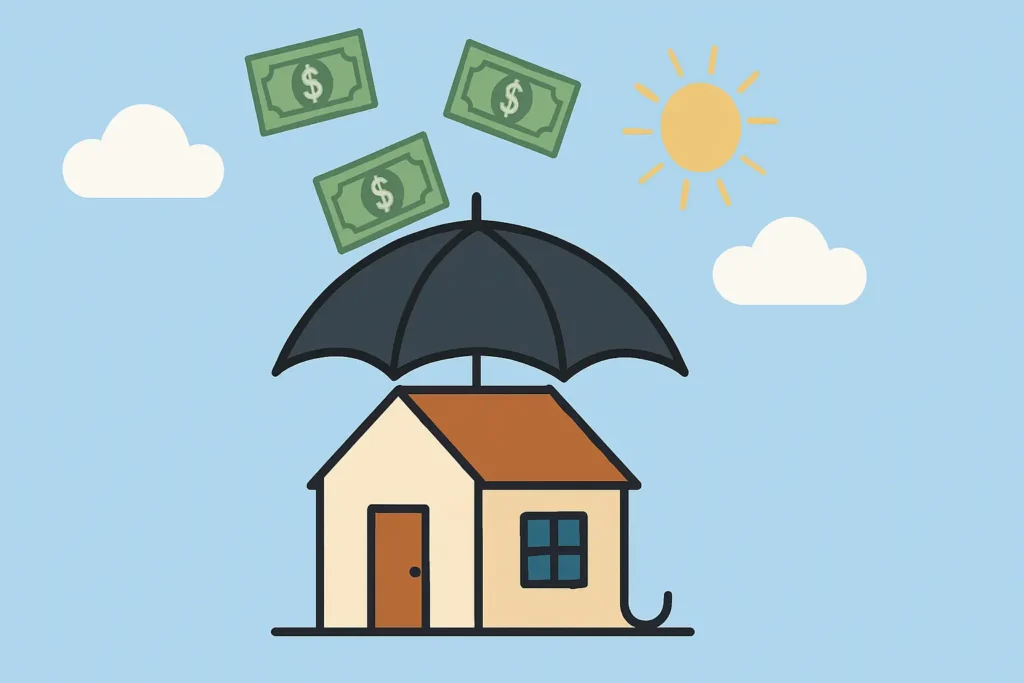Introduction: Discover Home Equity Loan Paths That Make Sense for You
If you’ve been sitting on a pile of home equity, you’re not alone. Thousands of Americans are house-rich but cash-poor, meaning most of their wealth is tied up in their homes. That’s why figuring out how to discover home equity loan options that fit your budget is such a smart move.
A home equity loan can unlock your home’s value, giving you a lump sum to use for almost anything—whether it’s remodeling your kitchen, consolidating high-interest debt, or paying for college tuition. But diving in without doing your homework? That’s a recipe for stress.
Let’s break it all down so you can discover home equity loan choices that truly work for your financial life.
1. What Does It Mean to Discover Home Equity Loan Options?
When people say “discover home equity loan options,” they usually mean shopping around to find the right loan type, amount, and terms for their needs.
A home equity loan is basically a second mortgage. Here’s how it works:
- You take out a one-time loan against your home’s equity.
- It comes with a fixed interest rate and fixed monthly payments.
- You pay it back over a set period—usually 5 to 30 years.
Lenders typically provide cheaper rates than credit cards or personal loans because your home serves as security. But it also means if you default, the lender can foreclose on your house. That’s why it’s so crucial to find a loan that fits your budget like a glove.
2. Figure Out How Much Equity You Have Before You Start
Before you start searching for home equity loan offers, you must determine your precise equity. This is simple math:
Home’s current market value – your remaining mortgage balance = your home equity
For example:
- Home value: $400,000
- Mortgage balance: $250,000
- Equity: $150,000
Most lenders will let you borrow up to 80-85% of your home’s value, minus your mortgage. In this case, you might qualify for around $70,000 to $90,000.
Knowing your borrowing power upfront helps you avoid wasting time on loans you can’t qualify for.
3. Understand Your Credit and Debt-to-Income Situation

To really discover home equity loan options that won’t strain your finances, you need to know how lenders see you. They care about two main things:
- Your credit score: The higher, the better. A score of at least 620 might get you in the door, but 700+ will snag the best rates.
- Your debt-to-income ratio (DTI): Lenders generally want this under 43%. That means your monthly debts, including the new home equity loan payment, shouldn’t exceed 43% of your monthly income.
If your credit isn’t where you want it to be, or your DTI is a little high, don’t panic. Sometimes paying down debt or fixing errors on your credit report can bump you into a better rate bracket within a few months.
4. Compare Lenders—This is Where You Truly Discover Home Equity Loan Deals
Shopping around is the smartest way to discover home equity loan offers tailored to your situation. Different banks, credit unions, and online lenders have different underwriting standards. That means the same borrower could get three very different loan offers.
Here’s how to compare effectively:
✅ Interest rates: Always compare the APR, which includes fees, not just the interest rate.
✅ Loan terms: A 30-year loan has smaller payments than a 10-year loan—but costs more in interest over time.
✅ Fees: These may consist of closing charges, origination fees, and appraisal fees.
✅ Prepayment penalties: If you pay off your loan early, certain lenders will charge you.
Don’t be shy about negotiating. Sometimes just mentioning you’re comparing offers is enough for a lender to shave off fees or lower your rate.
5. Decide Between a Home Equity Loan or a HELOC

When trying to discover home equity loan solutions, it’s common to mix up home equity loans with home equity lines of credit (HELOCs). They’re similar but serve different purposes.
- Home Equity Loan:
- Fixed rate
- Lump sum payout
- Set monthly payments
- HELOC:
- plays a similar role to a credit card that is connected to your equity.
- Variable rates
- Only pay interest on what you draw
A home equity loan is your best option if you have a large, one-time expense (such as a significant remodelling). If you want flexibility—say, for a series of home improvement projects over several years—a HELOC might make more sense.
6. Make Sure the Monthly Payment Fits Comfortably
A huge part of how to discover home equity loan choices that truly fit your budget is being honest with yourself.
Can you really handle the monthly payment, even if unexpected expenses pop up or your income changes?
Use this simple test:
(Total debts + new loan payment) / gross monthly income
If this is under 40%, you’re usually in good shape. If it’s pushing above 43%, you might want to borrow less or wait until your finances improve.
7. Prepare Your Documents to Make Approval Smoother
Once you’ve found the perfect lender, be ready to hand over paperwork. To discover home equity loan options quickly, gather these documents upfront:
- Recent pay stubs or proof of income
- Last 2 years of tax returns
- Mortgage statement
- Homeowners insurance declarations page
- Bank statements
- Possibly a recent home appraisal (the lender might order this themselves)
Being organized can speed up your approval from weeks to just days.
8. Watch Out for Hidden Costs
Sometimes people who set out to discover home equity loan options get tripped up by fees they didn’t expect. A home equity loan’s closing costs typically range from 2% to 5% of the loan balance.
So if you’re borrowing $50,000, you might pay $1,000 to $2,500 upfront. Some lenders offer “no closing cost” loans—just be careful because these often come with higher rates or hidden charges down the line.
9. Protect Yourself From Dipping Into Trouble

Because your house is on the line, it’s critical not to overextend. Use your home equity wisely—ideally for things that either increase your home’s value or improve your overall financial health, like paying off high-interest debt.
Avoid using home equity to fund lavish vacations or buy luxury items. That’s how people end up underwater if home values drop.
10. Keep an Eye on Home Prices in Your Area
Another smart tip when you discover home equity loan options: pay attention to your local housing market. If home prices are rising, your equity could grow, giving you more borrowing power later. If they’re dropping, you might be at risk of owing more than your home is worth—what experts call being “underwater.”
If you live in a hot market, it might be wise to lock in a loan now. If prices seem shaky, consider borrowing less to be safe.
Read Also: Is Sunshine Loans Safe? Uncovering the Truth About This Lender in 2025
Read Also: Is eLoanWarehouse the Best Option for Payday Loans? Here’s What You Should Know Before You Borrow
Read Also: Student Loans: Everything You Need to Know Before Borrowing
FAQs About How to Discover Home Equity Loan Options
Q1: How long does it take to discover home equity loan offers and close on one?
It usually takes anywhere from 2 to 6 weeks, depending on how quickly you provide documents and whether an appraisal is needed.
Q2: What’s the minimum credit score I need?
Most lenders want at least a 620, but a score of 700+ will get you the best rates.
Q3: Can I use the money for anything?
Yes! Common uses include home renovations, debt consolidation, college tuition, or even emergency expenses. Just be cautious—your home is collateral.
Q4: Are there tax benefits?
In some cases, interest paid on home equity loans used for home improvements is tax-deductible. Always check with a tax professional.
Q5: Should I go with my current mortgage lender?
It’s worth asking your current lender, as they might offer loyalty discounts. But always shop around—you could find a much better deal elsewhere.